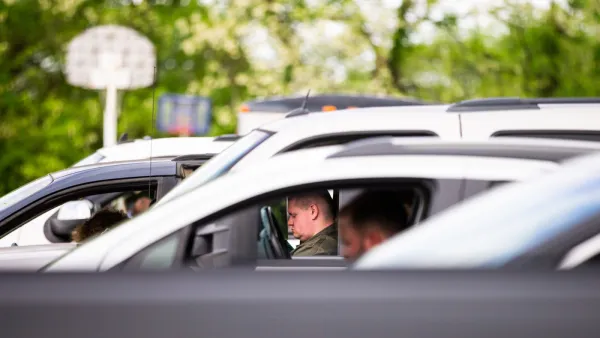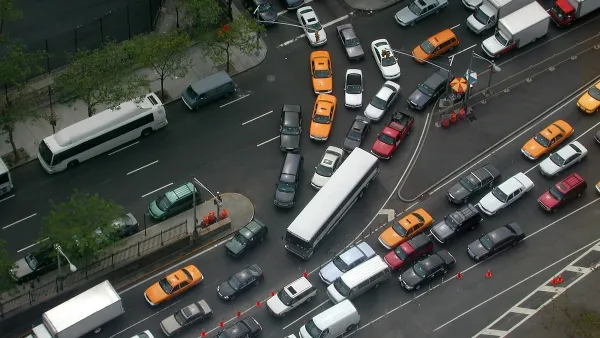Debunking the notion of the personal automobile as liberator.

In a piece for Strong Towns, Tiffany Owens Reed pushes back on the common—false—rhetoric that transit activists and leftist politicians are trying to “take away cars” and “force” a reliance on public transit.
For Owens Reed, this clouds the debate. “What should be a conversation about wise public investment and stewardship can quickly become a debate about private property and free choice,” Owens Reed notes.
Debunking the car’s role as liberator while acknowledging that, in many U.S. cities, we’ve constructed our built environment so that cars are a necessary part of life, Owens Reed writes that many of the most vulnerable people in our society—“Seniors. Children. People with disabilities. The poor.”—“are the ones who are the most vulnerable yet seem to be considered last, if at all, in the way our cities are designed.” For Owens Reed, “Cars and car-oriented design give everyone an element of freedom except for them.”
Equitable, accessible transportation isn’t about taking cars away from those who have them. It’s about providing more choices, and safer transportation networks, for everyone. “Truly equitable transportation reform would take this kind of monopoly seriously and seek to make the joy of movement available to everyone, no matter if they could afford a car or not.”
FULL STORY: Don’t Ban Cars; Ban the Car Monopoly

National Parks Layoffs Will Cause Communities to Lose Billions
Thousands of essential park workers were laid off this week, just before the busy spring break season.

Retro-silient?: America’s First “Eco-burb,” The Woodlands Turns 50
A master-planned community north of Houston offers lessons on green infrastructure and resilient design, but falls short of its founder’s lofty affordability and walkability goals.

Delivering for America Plan Will Downgrade Mail Service in at Least 49.5 Percent of Zip Codes
Republican and Democrat lawmakers criticize the plan for its disproportionate negative impact on rural communities.

Test News Post 1
This is a summary

Test News Headline 46
Test for the image on the front page.

Balancing Bombs and Butterflies: How the National Guard Protects a Rare Species
The National Guard at Fort Indiantown Gap uses GIS technology and land management strategies to balance military training with conservation efforts, ensuring the survival of the rare eastern regal fritillary butterfly.
Urban Design for Planners 1: Software Tools
This six-course series explores essential urban design concepts using open source software and equips planners with the tools they need to participate fully in the urban design process.
Planning for Universal Design
Learn the tools for implementing Universal Design in planning regulations.
EMC Planning Group, Inc.
Planetizen
Planetizen
Mpact (formerly Rail~Volution)
Great Falls Development Authority, Inc.
HUDs Office of Policy Development and Research
NYU Wagner Graduate School of Public Service





























